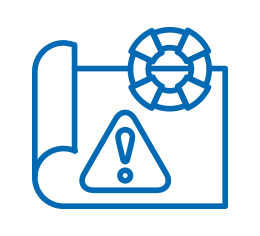|
|
 | Integrated European network Hupac’s network covers the entire continent with daily trains. Focal points are the economic areas in Germany, northern Italy, Belgium and the Netherlands. From there, dozens of trains connect peripheral and emerging markets such as Spain, France, Scandinavia, Poland, Switzerland, Austria, south-east Europe and Turkey. |  | Dedicated terminals Our network is based on efficient terminals managed
or co-managed by Hupac. The main locations are north Italy, Antwerp, Rotterdam, Duisburg, Ludwigshafen, Singen and Warsaw/Brwinów. Terminal projects are located in Duisburg, Basel, Brescia, Milan and Piacenza. |  | Own railcars Hupac operates a fleet of 9,100 wagon platforms for all types of loading units, which offers clear advantages in terms of independence, flexibility and reliability. |  | Expert teams in Switzerland and Europe Our teams based in Switzerland, Italy, Germany, Belgium, the Netherlands, Spain, Poland, Russia and China are available to assist you with all your needs and ensure you enjoy a full service experience. |  | Selected rail partners Hupac supports rail liberalization and chooses the optimal rail partner for each relation. Our more than 20 rail partners are the best-in-class in their regional market. We focus on long-term partnerships and are committed to efficient and reliable processes. |  | Prepared for contingency management A fleet of reserve train sets, own locomotive drivers ready to step in when needed, an extensive network offering a variety of alternatives, a 24/7 traffic control team supported by AI planning tools – that’s how we keep the traffic moving even in tough times. |  | Digital services to make intermodal easier Hupac is at the forefront of the digitalization of intermodal services. Easy booking, seamless track & trace, machine-to-machine data exchange, digitally supported terminal processes and estimated time of pick-up are just some of the many benefits you can count on for your transports. |  | Technical support We provide all the technical advice you need to ensure that your vehicles are always compatible with the requirements of combined transport. |
|
|
|
|
|
|